Boris Johnson vows to end 'unfair' prosecutions of Army veterans
- Published
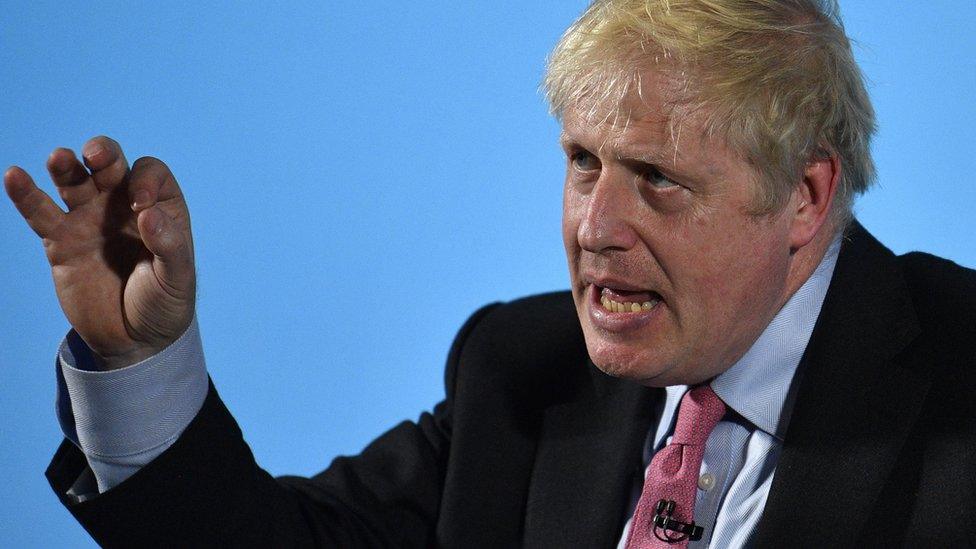
Boris Johnson says veterans should be protected from "unfair prosecutions"
Potential prime minister Boris Johnson has pledged to end "unfair" prosecutions of Army veterans who served in Northern Ireland.
The Tory leadership contender has joined rival Jeremy Hunt in backing a public campaign supporting soldiers who served during the Troubles.
Many Conservative MPs have called for such a move in recent months.
The government is working on legislation to deal with the legacy of Northern Ireland's Troubles.
Mr Johnson also reportedly promised on Thursday to appoint a veterans minister if he is chosen to lead the Conservative Party.
"We need to end unfair trials of people who served their Queen and country when no new evidence has been produced and when the accusations have already been exhaustively questioned in court," he told the Sun newspaper.
"We must protect people against unfair prosecutions. And I will.
"I totally support the principle of cross-government work to secure world-class care and support for veterans."
Sinn Féin legacy spokesperson Linda Dillon said Mr Boris Johnson was "backing a campaign which is about giving these soldiers immunity from prosecution.
"His comments are a reckless and a highly offensive attack on the rights of victims of the conflict in their search for truth and justice and flies in the face of the views expressed in a public consultation on dealing with the legacy of the past."
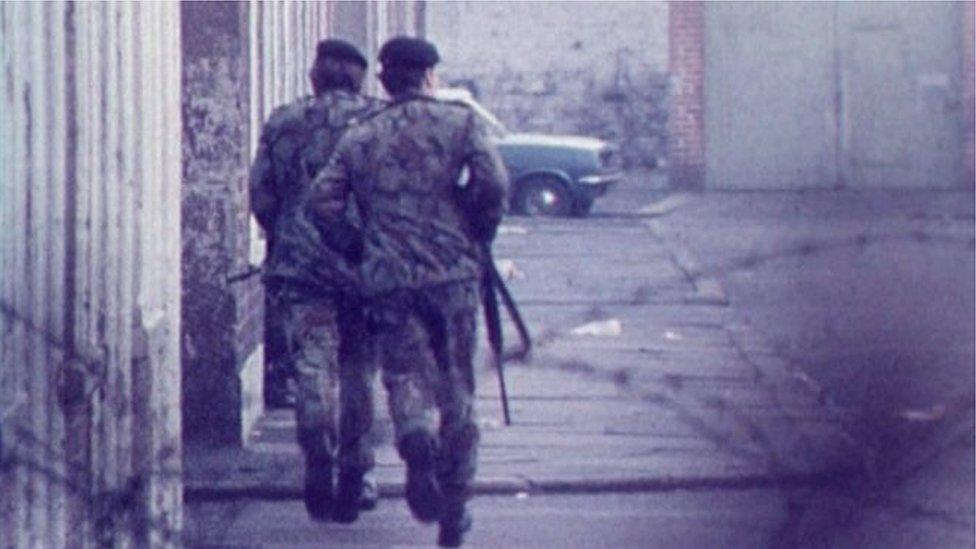
Six former soldiers are facing prosecution in connection with Troubles-era killings
A number of Northern Ireland veterans are facing charges, including Soldier F, who has been charged in relation to the killings of two protesters on Bloody Sunday in Londonderry in 1972.
Former Northern Ireland Police Chief Constable Sir George Hamilton has previously said official figures show that investigations are not unfairly focused on the armed forces and police.
The idea of a statute of limitations for former soldiers is backed by many Conservative backbenchers, including some who served in Northern Ireland.
But it was withdrawn from a legacy consultation document published in May 2018, even though Prime Minister Theresa May had claimed the system for investigating the past was "patently unfair".
Last week, the Northern Ireland Office published responses to its consultation, which showed a "clear majority" of respondents felt an amnesty for Troubles-related matters would be inappropriate.
No specific question was asked on the proposal for a so-called statute of limitations for military veterans.
It would prevent veterans from being prosecuted.
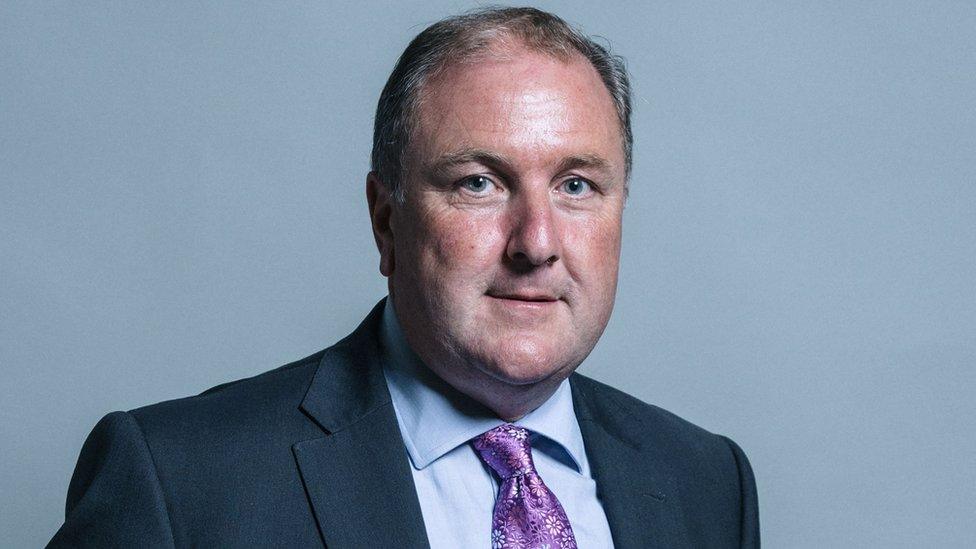
Simon Hoare was elected as the chairman of the Northern Ireland Affairs Select Committee in June
However, the recently elected chairman of Westminster's Northern Ireland Affairs Committee said he did not think it was right to put timeframes on bringing forward legislation.
Simon Hoare told BBC News NI he had been asked to back the campaign but chose not to because of his committee role.
The Conservative MP for North Dorset said any solution that did not work for everyone would "not last very long".
"It's more important to get it right," he told the Good Morning Ulster programme.
Mr Hoare said he did not support Mr Johnson's Tory leadership campaign as he found the former foreign secretary to be "not be across the detail" on many matters.
Mr Johnson is battling it out with the current foreign secretary, Jeremy Hunt, to become the next prime minister.
They are trying to convince around 160,000 Conservative Party members to support them in the ballot for the top job, with the winner set to be announced on 23 July.
Here's a quick guide to their positions on Brexit, immigration, tax, spending, health and social care and education.
- Published5 July 2019

- Published22 May 2019
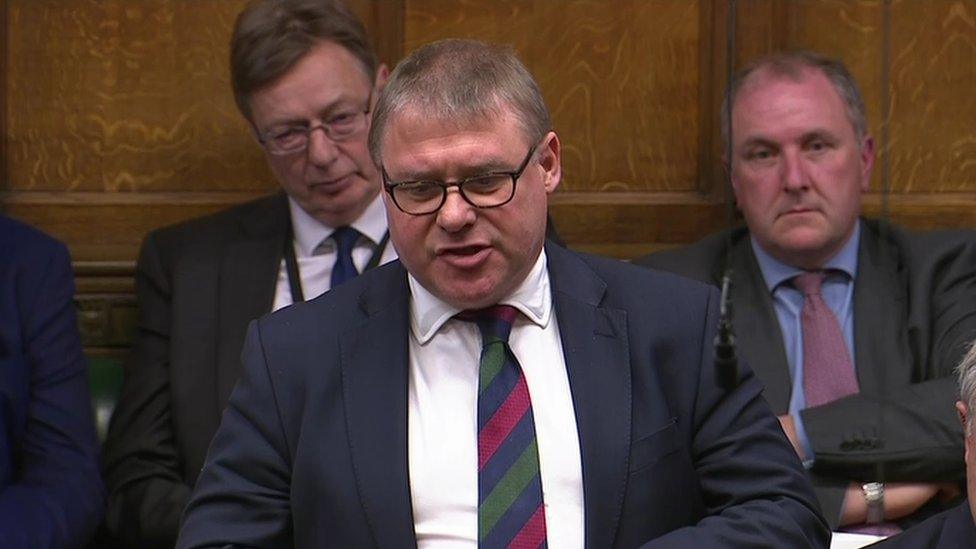
- Published12 July 2019
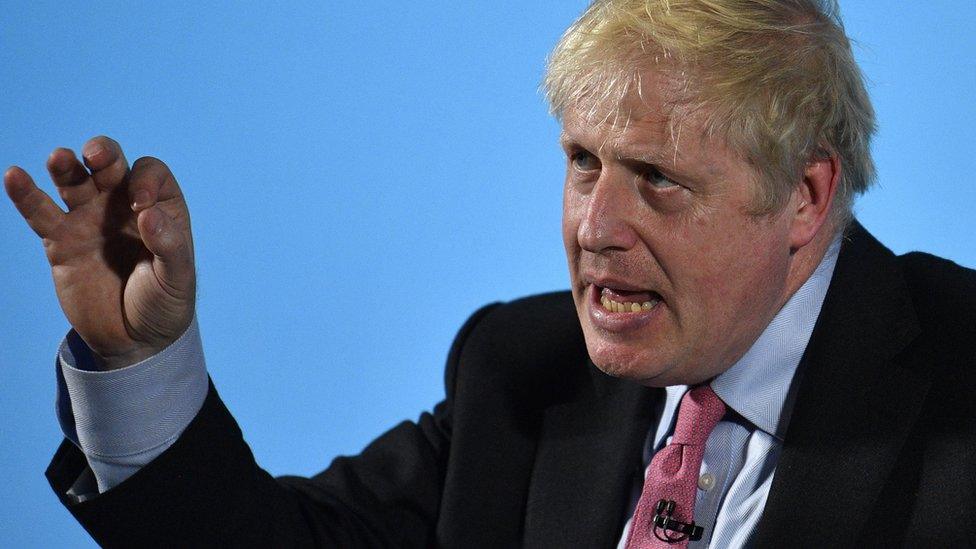
- Published20 May 2019
